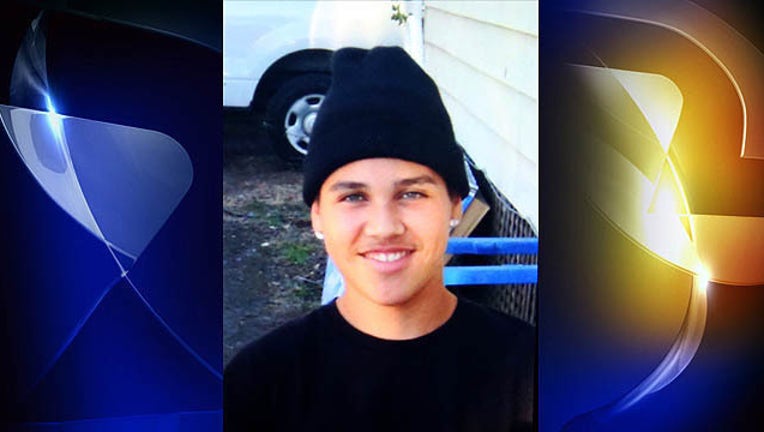U.S. Supreme Court mulling whether to hear Sonoma Co. appeal in Andy Lopez case

SONOMA COUNTY, Calif. (BCN) - By Bay City News Service
The U.S. Supreme Court could decide as soon as Thursday whether to hear Sonoma County's appeal of a ruling allowing a sheriff's deputy to be sued for excessive force in fatally shooting a 13-year-old boy who was carrying a toy rifle in 2013.
Andy Lopez was shot and killed by Deputy Erick Gelhaus on the afternoon of Oct. 22, 2013, as he walked along a street in an unincorporated area southwest of Santa Rosa while carrying a pellet gun that looked like an AK-47 rifle.
The shooting was the subject of protests and marches by hundreds of people in Santa Rosa and elsewhere in the Bay Area in the fall of 2013.
The boy's parents, Rodrigo Lopez and Sujay Cruz, filed a federal civil rights lawsuit against the county and the deputy.
Their claims included an allegation that Gelhaus violated the constitutional Fourth Amendment ban on unreasonable search and seizure by using excessive force.
Gelhaus, represented by the county, argued he was legally shielded from being sued on that claim because his use of force was reasonable under the circumstances.
Gelhaus said he believed the weapon was an assault rifle, that Lopez was raising it toward him and that the lives of Gelhaus and his partner were in danger. The boy's parents claim he was not lifting the toy gun.
The county appealed to the U.S. Supreme Court after a federal trial judge in Oakland and the 9th U.S. Circuit Court of Appeals in San Francisco said Gelhaus was not legally protected from that claim.
The case is now on the Supreme Court's conference list for Thursday for discussion of whether to grant review of the county's appeal.
If the court denies review, the case will go back to the court of U.S. District Judge Phyllis Hamilton for a jury trial to determine the facts of the shooting and whether Gelhaus's action was reasonable. The parents' lawyer, Arnoldo Casillas, said he would expect that trial within a year.
If the court grants a review, the process of briefing, a hearing on the arguments and preparation of a ruling would take months longer.
The high court grants review and a hearing in only about 80 cases per year, or about 1 percent of the 7,000 to 8,000 petitions for review filed each year, according to the court.
Unusually, this week is the third week in a row that the case has been on the court's conference list. Casillas said it is a "mystery" as to why the panel has twice postponed deciding whether to take up the case. The court has no deadline and could postpone its discussion again.
Even if the Supreme Court takes up the case and eventually decides that Gelhaus is legally immune from the Fourth Amendment claim, the lawsuit would still contain a state law claim of wrongful death that would go to trial.
The issue before the high court in the county's petition is whether case law at the time, as determined by the Supreme Court and federal appeals courts, clearly showed that Gelhaus's action was excessive force for the circumstances.
The county contends that Supreme Court precedents show that the amount of force was reasonable.
Its lawyers say that if last year's 9th Circuit ruling declining to protect Gelhaus is left in place, it would have "a direct, adverse impact on the actions of law enforcement officers confronting one of the gravest threats to public safety -- an individual armed with an assault rifle."
Lawyers for the county wrote, "In a post-Sandy Hook, post-Parkland world, neither law enforcement officers nor the public they protect have the luxury of assuming that someone in their mid to late teens carrying what appears to be an assault rifle on a sunny afternoon is more likely to be plinking cans with an illegal BB gun than presenting a credible threat of violence."
The parents' lawyers wrote in an opposition brief, "Lopez did not attempt to evade the deputies and nothing about his conduct was suspicious. Lopez was just walking along, minding his own business."
Gelhaus fired eight bullets at the boy and hit him seven times.
The parents' brief also contends that "shooting a 13-year-old child seven times is constitutionally different from shooting him once or twice," since they claim the evidence shows that the first shot disabled Lopez's left arm and would have made it extremely difficult for him to fire a
real AK-47.

